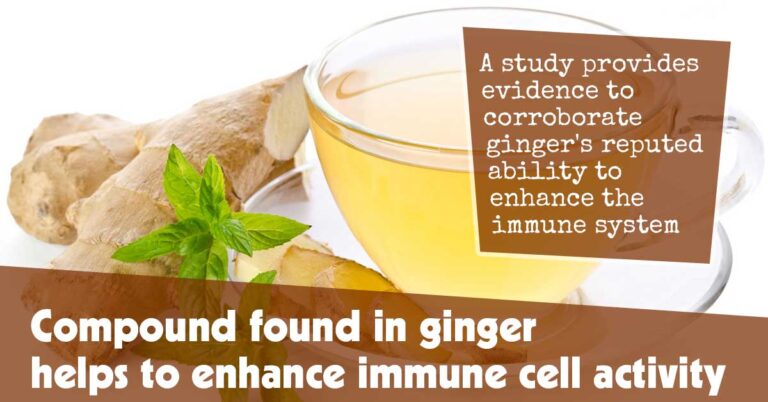Compound in Ginger Boosts Immune Cell Function
Ginger has long been used in traditional medicine as a remedy, owing to its pungent fragrance and ability to boost immunity. A recent study provided evidence supporting ginger’s claim of improving immune function.
Laboratory studies demonstrate that even low doses of ginger’s active components can trigger white blood cells to become more responsive, prompting white blood cells to adapt accordingly.
Research further demonstrates that this effect is caused by an effect mediated by receptor types that participate in pain perception from heat as well as sensing spicy food.
Ginger consumption has steadily increased over the past decade; however, its beneficial properties are yet to be determined and which specific molecular mechanisms and compounds are involved in this process.
Researchers conducted a comprehensive investigation in order to shed light on this question, beginning with results of an earlier preliminary study. As per this preliminary research, pungent compounds from ginger tend to enter the bloodstream approximately 30-60 minutes following consumption of 1L of ginger tea; 6-gingerol compound was the compound most present, achieving plasma concentrations between 7-17 micrograms/liter in blood plasma concentration measurements.
